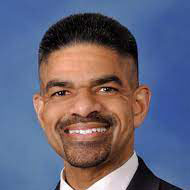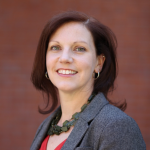
Course Information
- Audience: Public Health Professionals
- Format: Webinar
- Date/Time: Monday, April 5th 2021, 4:30 PM – 6 PM EST.
- Price: Free
- Length: 1.5 hours
- Credential(s) eligible for contact hours: Sponsored by New England Public Health Training Center (NEPHTC), a designated provider of continuing education contact hours (CECH) in health education by the National Commission for Health Education Credentialing, Inc. This program is designated for Certified Health Education Specialists (CHES) and/or Master Certified Health Education Specialists (MCHES) to receive up to 1 total Category I continuing education contact hours. Maximum advanced-level continuing education contact hours are 1. Provider ID: 1131137 Event ID: SS1131137_AHP1.
If you are not seeking a CHES/MCHES contact hours, if you complete the post-test and evaluation, you will receive a Certificate of Completion. The Certificate will include the length of the course. - Competencies: Data Analytics and Assessment Skills
- Learning Level: Awareness
- Companion Trainings: Antiracism as Health Policy (Part 2)
Antiracism as Health Policy (Part 3) - Supplemental materials:None
- Pre-requisites: None
About this Recording
Part 1: Data, race, and COVID-19
This three-part series will examine the racial disparities in health brought vividly to public attention during the COVID-19 pandemic. The first panel in our series will explore the importance of collecting and utilizing data on race to better understand the impact of the pandemic.
Cohosted with Boston University Center for Antiracist Research
What you'll learn
At the end of the recording, participants will be able to:
- Describe economic effects of COVID on households included in the Children’s HealthWatch survey.
- Describe evidence for the association of structural racism and telehealth inequities among Black and Latinx communities, and the implications of those inequities
- List 2 factors experienced by Black and Latinx students that negatively influence their academic success and provide a possible intervention to address them
- Describe data limitations that impede comparing COVID case and death rates across States, as identified by the COVID Racial Data Tracker
Moderator
-

Sandro Galea
@sandrogaleaDean and Robert A. Knox Professor, Boston University School of Public Health

Ibram Kendi
@dribramDirector and Founder, Center for Antiracist Research, Boston University
Jayakanth Srinivasan
Research Associate Professor, Boston University Questrom School of Business

Megan Sandel
@megansandelAssociate Professor, Pediatrics, Boston University School of Medicine

Stephen A. Wilson
Chair, Family Medicine, Boston University School of Public Health

Aviva Geiger Schwarz
Data Editor, The COVID Racial Data Tracker, Boston University Center for Antiracist Research

Stephanie Ettinger de Cuba
@stephaniedc
Executive Director, Children’s HealthWatch

Kimberly Atkins
@kimberlyatkinsMODERATOR
Senior Opinion Writer,
The Boston Globe
Julia Raifman
@juliaraifmanAssistant Professor,
Boston University
School of Public Health
Kaye-Alese Green
@kayaleseDiversity & Inclusion Fellow, BUSM, Visiting Fellow, Institute of Health Systems Innovation & Policy
Sandro Galea, a physician, epidemiologist, and author, is dean and Robert A. Knox Professor at Boston University School of Public Health. He previously held academic and leadership positions at Columbia University, the University of Michigan, and the New York Academy of Medicine. He has published extensively in the peer-reviewed literature, and is a regular contributor to a range of public media, about the social causes of health, mental health, and the consequences of trauma. He has been listed as one of the most widely cited scholars in the social sciences. He is chair of the board of the Association of Schools and Programs of Public Health and past president of the Society for Epidemiologic Research and of the Interdisciplinary Association for Population Health Science. He is an elected member of the National Academy of Medicine. Galea has received several lifetime achievement awards. Galea holds a medical degree from the University of Toronto, graduate degrees from Harvard University and Columbia University, and an honorary doctorate from the University of Glasgow.
Subject Matter Experts
Ibram X. Kendi is the Andrew W. Mellon Professor in the Humanities at Boston University and the founding director of the BU Center for Antiracist Research. He is a contributing writer at The Atlantic and a CBS News correspondent. He is the author of many books including Stamped from the Beginning: The Definitive History of Racist Ideas in America, which won the National Book Award for Nonfiction, and four #1 New York Times bestsellers, How to Be an Antiracist; Stamped: Racism, Antiracism, and You, co-authored with Jason Reynolds; and Antiracist Baby, illustrated by Ashley Lukashevsky and Four Hundred Souls: A Community history of African America 1619-2019, edited with Keisha N. Blain. In 2020, Time magazine named him one of the 100 most influential people in the world.
Kimberly Atkins is a senior opinion writer and columnist at The Boston Globe, and lead columnist for The Emancipator, a joint venture by Globe Opinion and the Boston University Center for Antiracist Research that reimagines 19th-century abolitionist newspapers to reframe the current national conversation on racial justice. She is also an MSNBC contributor, and a guest host for the NPR/WBUR-produced news program On Point. She is also co-host of the weekly podcast #SistersInLaw, which breaks down the law behind the headlines of the week. Previously, Kimberly was the first Washington, DC-based news correspondent for WBUR. She has also served as the Boston Herald’s Washington bureau chief, guest host of C-SPAN’s morning call-in show Washington Journal, and a Supreme Court reporter for Massachusetts Lawyers Weekly and its sister publications. She has appeared as a political commentator on a host of national and international television and radio networks, including CNN, Fox News, NBC News, PBS, NPR, Sky News (UK), and CBC News (Canada). Before launching her journalism career, she was a trial and appellate litigation attorney in Boston. Kimberly is a native of Michigan, and a graduate of Wayne State University, Boston University School of Law and Boston University College of Communication, and the Columbia University Graduate School of Journalism.
Kaye-Alese Green received a BS in Psychology and Master’s in Interdisciplinary Studies with a dual concentration in Public Health and Urban Education from the University of Central Florida. Currently she is in between her second and third year of medical school and is serving as the inaugural Diversity & Inclusion Fellow for Boston University School of Medicine with a joint appointment as a Research Fellow at BU’s Institute of Health Systems Innovation & Policy. Ms. Green’s research interests include pediatric trauma, medical education reform and upstream divers of health disparities.
Registration
Select the Enroll Me button below to register for this recording. If you have any trouble accessing the recording, contact support@nephtc.org.
Acknowledgement: This project is/was supported by the Health Resources and Services Administration (HRSA) of the U.S. Department of Health and Human Services (HHS) under grant number UB6HP31685 “Regional Public Health Training Center Program.” This information or content and conclusions are those of the author and should not be construed as the official position or policy of, nor should any endorsements be inferred by HRSA, HHS or the U.S. Government.



